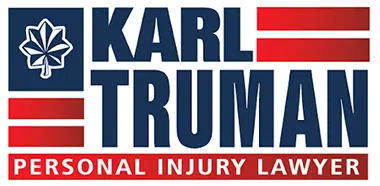The Rest of the Story about my disciplinary grievance
If you were to ask a business owner “What is your most valuable asset?” some might say “their education”, “employees” or their “equipment”. But, I think most business owners would say their “client list” is their most valuable asset. This is because businesses that have been around for a long time, mine included, spend enormous resources in time, sweat and money to build their client base, nurture and develop employees, office systems, advertising and infrastructure.
If you then ask a business owner if their client list is their most valuable asset, “what do you do to protect it?” They would probably tell you that they have an employment agreement with their employees that they will not copy client names, addresses and phone numbers from the company’s computer or call those clients to solicit them to leave the company when the employee plans to leave and go out on their own. This would be true for every business imaginable, whether it is a doctor, dentist, insurance agent, stock broker real estate agent – every business unless you are a law firm.
When I hired a new associate attorney, we made an agreement that he knew and appreciated the substantial investment I made in all of the things that go into running a law firm and developing clients. We had an agreement, both morally and in writing, that if he ever decided to leave my firm, he would not solicit clients to leave with him or copy client lists from my law firm computer. If he did, he agreed that he would compensate me for the work and investment I made in developing the clients.
All went well for several years, until he decided to leave to go out on his own. I wished him well, as I would anyone starting a new venture. But I discovered that he had been secretly soliciting clients to leave with him before he even told me he was leaving. Before he left my law firm, and even before he told me he was leaving, he took a list of client names, addresses and telephone numbers and started calling them making negative comments about me to entice them to leave and hire him. One client told me that he even offered to discount the fee if they would leave my firm to hire him.
My father taught me at an early age that your word is you bond. When you make an agreement, you keep it. I believe in keeping people accountable to their word, so I sought to enforce the agreement the associate attorney had with me.
Instead of keeping his word, the attorney looked for a way out of it. So, in response, he filed a complaint against me with the Indiana Supreme Court Disciplinary Commission claiming that my agreement violated the attorney disciplinary rules. He claimed that our agreement interfered with his right to practice law and the clients’ right to choose their lawyer. It is important to note that there has never been a case like this in the State of Indiana. Lawyers call this a “case of first impression”.
At least two academic articles from within the State of Indiana agree with me, that a law firm should be able to protect its investment in its client list and enforce nonsolicitation agreements such as the one that the associate attorney entered into with me. As one put it: “To allow a firm to expend resources forging and nurturing such relationships, but to prohibit them from protecting them against those who would seek to benefit personally from the expenditure of resources by the firm, is fundamentally unfair.” See Robert Parker, “Non-Compete Agreements Between Lawyers: An Economic Analysis,” 40 OCT Res Gestae 12, 14 (Oct. 1996)
As another author noted, there is a strange paradox when non-compete agreements can be applied to “all types of employees, from tree trimmers to doctors,” but the “one group exempt from these contracts is the legal community, which is in the best position to know the ramifications of signing a contract and to understand legal terminology.” Daylon L. Welliver, Note, “When the Walls Come A Tumblin’ Down: A Look at What Happens When Lawyers Sign Non-Competition Agreements and Break Them” 29 Ind. L. Rev. 729, 744 (1996)
The agreement with my associate did not restrict his right his right to compete. I have always been supportive and encouraging with any young attorney wanting to start his own practice because I was in that situation myself at one time. My agreement said he would not copy client lists and solicit them to leave my firm. Anyone who owns a business would think this makes sense.
After I discovered that my associate attorney broke his agreement by copying client lists and soliciting them to retain him after he left, I attempted to hold him to his word, as anyone would expect. Regrettably, the Disciplinary Commission agreed with him resulting in the public admonition. Even though I disagree with the Commission’s position, I must respect and abide by it.
Sincerely,
Karl Truman
Attorney at Law
















